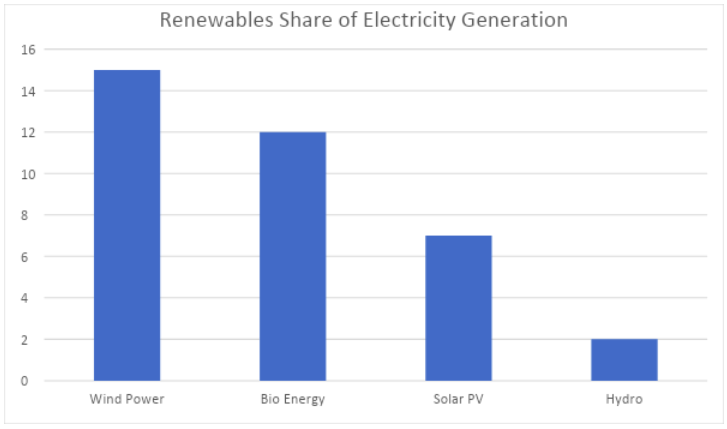The Future of the Energy Industry
Amidst climate change activists frequently hitting the headlines thanks to the ongoing efforts of Greta Thunberg and Extinction Rebellion campaigners, it seems like the energy sector is now under the spotlight. With electricity and fuel companies still using non-renewable sources, the public wants to know: will the future of the energy industry be sustainable?
It’s a well-known fact that the industry needs to make the transition to sustainable sources soon. With oil, coal and gas resources reducing each year, and an increase in excess carbon being released as a result of energy production, it’s a growing issue. But, every year, the demand for energy continues to grow, making the search for alternative energy sources increasingly severe.
The future of energy is understandably going to be setting its focus on alternative sources. Over the next few years, we predict an increase in research and technological developments:
Wind Power
Off-shore wind farms have been key in the past few years. According to the Department of Energy & Climate Change, in 2018, wind power generated 15% of the UK’s total renewable energy.
When comparing the figures to this year, there’s been an overall increase in the level of energy generated by wind power :
In 2019 Q2, electricity generated from onshore wind increased by 13 per cent, from 5.4 TWh in 2018 Q2 to 6.1 TWh.
Generation from offshore wind saw an even greater increase, up by 25 per cent (1.2 TWh), to 6.0 TWh
This increase has been of extreme benefit for the industry with the change in energy supply systems demonstrating a trailblazing pursuit for change.
However, wind power faces problems. Wind farms are extremely costly to create and develop. This has led to more time focusing on how costs can be minimised to make the most of the effective energy source.
Tidal Power
The oceans aren’t just home to sustainable wind farms, they’re also home to a particularly overlooked energy source: tidal power. In the coming years, we're expecting to see the world's oceans become fully utilised by the energy industry.
More investment has gone into research surrounding tidal power and it promises a bright future. The focus is on creating powerful generators that can handle the severity of some of the ocean’s landscapes and environmental settings.
Technological Developments
The other aspect of the energy sector that will see mass improvements is the technological and digital side of the industry. The Internet of Things will focus on a more intelligent, greener approach to energy usage.
We can expect to see the ‘Internet of Energy’ start to develop a web of connected digital operation systems that will monitor and control both the usage and storage of energy. By having interconnected appliances, items will shut down and stop using energy when more power is required elsewhere. This works to reduce the strain on power grids and make sure appliances are used in an eco-friendlier manner.
It’s safe to say that overall, the future of the energy industry will be focused on technological advancements. Leading minds are ploughing through new game-changing research, and by using digitalisation to our advantage, it’s likely that not only will current technologies be optimised, but new sustainable tools will be developed.
As the sector strives for change, the industry needs more organisations to deliver sustainable results to consumers and businesses up and down the country. As a result, suppliers are being encouraged to market with more innovative approaches to energy supply.
Dyball Associates are proud to help new supply businesses into the fold. Through our energy market consultancy services and the software we’ve developed, we’re supporting new UK electricity and gas suppliers get set up and start supplying.
For more information on how to start and manage an energy company , get in touch with Dyball Associates today.





